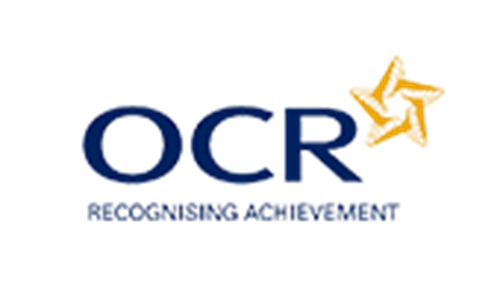As a manager of people, you understand the importance of building a solid team. It is one of the non-negotiables behind the success of any venture. The backbone of every organisation.
The benefits, you know. The challenge comes with the creation.
“Teamwork makes the dream work.” You may be rolling your eyes. Yes, it’s a well-worn cliche by now, but one whose essential meaning holds firm. A team that works well together will always accomplish its goals faster and more effectively than a group of individuals.
Ensuring effective teamwork requires patience, strong leadership, clear communication, and commitment. In this blog, we will discuss the key components of what makes a good team and provide some tips for evaluating your team’s skills, and upskilling (or even reskilling) them.

What is Teamwork?
Teamwork is the ability of a group of people to work together cooperatively towards a common goal. Teamwork is not just about working well with others; it is about working together towards a common goal and achieving it as a team. So to ensure good teamwork, a leader should be able to provide clarity and always drive the members to achieve the goals.
What Makes a Good Team?
A good team is made up of individuals who have various skills and perspectives, united in their mission. A good team balances its more vulnerable points, and capitalises fully on its better ones, to create a strong team.

Imagine a hospital emergency department working together during a natural disaster. The emergency department is typically made up of doctors, nurses, and support staff. Each of the members has different roles and responsibilities. But during a natural disaster, everyone pitches in to help where needed. The doctors might help triage patients, while nurses and support staff help to set up and run temporary treatment stations.
The team works together seamlessly, communicating effectively and quickly to ensure that patients receive the care they need. They collaborate with other groups, such as rescue teams, to transport patients to safety and get them the necessary care. They trust and rely on each other to make quick decisions and take action in the face of a crisis.
They also make sure to keep safety measures in place, follow the protocols and maintain a calm and composed attitude, even in a chaotic and stressful situation.
This example shows how teamwork is essential in critical cases. How different roles and expertise come together to achieve a common goal. How trust, communication, and collaboration are critical factors for a team to work effectively.
Now picture that scenario with a team of individuals, without trust in each other’s abilities. In other words, the left hand not knowing what the right hand is doing. It doesn't work, and the consequences do not bear thinking about.
A rather extreme example, granted, but it demonstrates the importance of the concept.

Effective Communication
Effective communication is the foundation of any successful team. Team members who can openly and honestly communicate with one another, work together more effectively. No crossed wires and no festering issues polluting the workspace. This includes not only verbal communication but also non-verbal cues. With communication, the team is able to make better decisions, solve their problems, and achieve their goals – quicker.
Collaboration
Effective collaboration allows team members to pool their knowledge, skills, and resources to achieve a common goal. It enables different individuals to learn from one another, leading to new ideas and solutions- a team that is better than the sum of its constituent parts.
Trust
When team members trust one another, they can work together more effectively. Trust allows team members to rely on one another and to take risks. It also enables team members to be open and honest with one another- which is critical for effective communication and collaboration. This encourages an environment of freedom where everyone can work at their full potential.

Evaluating Your Team’s Skills
As a manager or business owner, it is essential to evaluate your team’s skills regularly. This can be done through performance evaluations, skill assessments, and regular team meetings. You can develop a plan to upskill or reskill your employees by identifying areas of weakness.
Upskilling and Reskilling
Upskilling refers to the process of improving an employee’s current skills, while reskilling refers to the process of teaching an employee new skills. Both are critical for the success of a team.
Upskilling and reskilling have a host of proven benefits for both the employer and employee:
- improves employee morale
- improves productivity
- improves job satisfaction
- increases employee value to an organization
- saves on recruitment costs
- better company culture
- better industry reputation (which makes for easier recruitment)
Training is a valuable tool to help your team learn the digital skills that have become vital as the workplace transforms. Their improved skill set will translate into better performance and more success.

Tips for Building a Successful Team
Building a successful team can be challenging, but you can achieve it by providing clarity, ensuring proper communication, and building trust.
Clearly Define the Team’s Goals and Objectives
One of the essential steps in building a successful team is clearly defining the team’s goals and objectives. Identifying what the team is trying to achieve and setting specific, measurable targets.
A well-defined goal and objective are like swim lanes. They ensure everyone is on the right track, working towards the same goal, with no misunderstanding. Similarly, team members are more likely to be engaged and motivated when they understand what they are working towards and why.
Encourage Open and Honest Communication
Encouraging open and honest communication within your team will foster a culture of trust and collaboration. This means creating an environment where team members feel comfortable sharing their thoughts, ideas, and concerns. Leaders can do this through regular team meetings, one-on-one conversations, and the use of communication tools like instant messaging and email. Other than that, you can encourage your employees or coworkers to enrol in communication courses to increase their teamwork skills. What does not come naturally can always be taught.

Foster a Culture of Collaboration and Trust
When team members trust one another and can collaborate effectively, they can work together better. This can be achieved through team-building activities, regular team meetings, and by setting a positive example as a leader. Personal development courses can also help develop skills that will help individuals collaborate more effectively.
Accomplish Your Goals Together
When a team works effectively, it can accomplish its goals in a shorter amount of time. Good teamwork leads to increased job satisfaction and employee engagement. As a manager or business owner, it is crucial to foster a teamwork culture and provide opportunities for your employees to develop their teamwork skills through various staff training.
Pitman Training offers many staff training programs to help you build teamwork skills. Contact us today if you’re interested in creating an effective team by reskilling or upskilling them, or visit our Centre in Corner Plaza, 4th Floor, Westlands, Nairobi




















